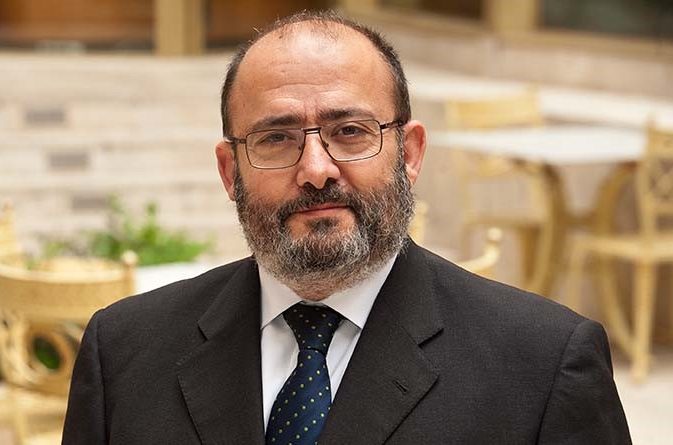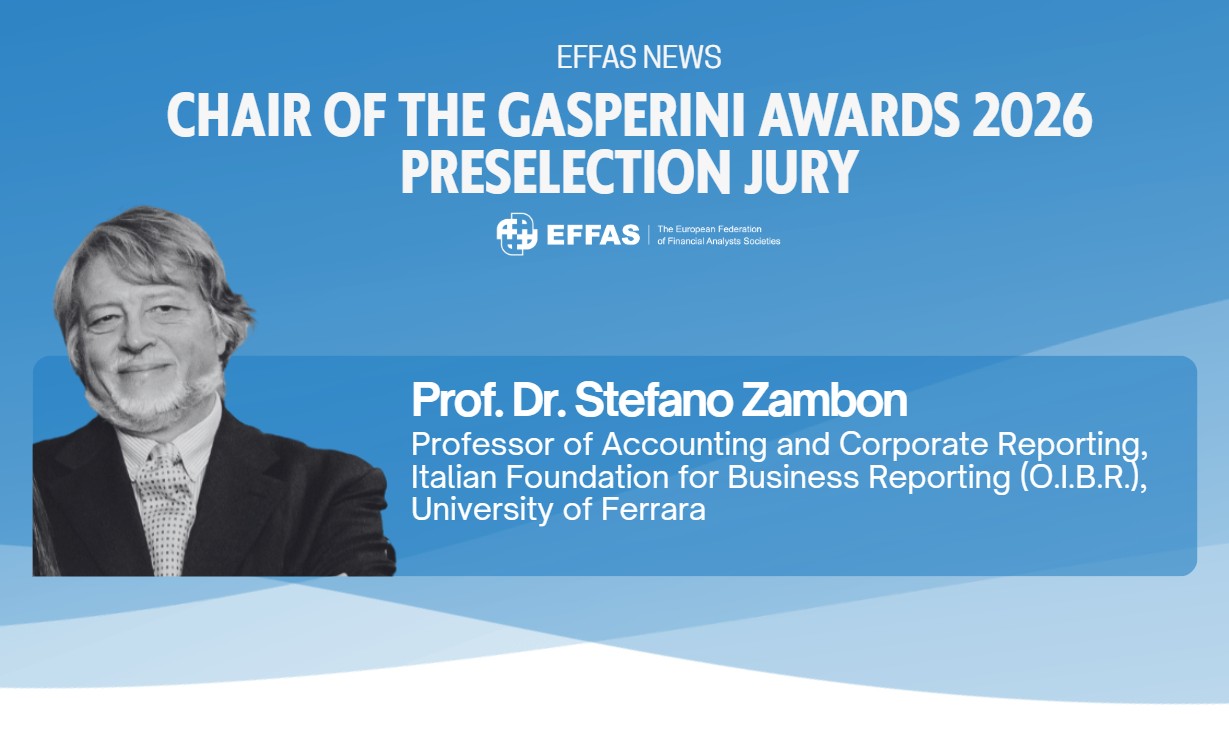TRIBUNA written by Jesús López Zaballos, Director of the FEF / IEAF School and President of EFFAS. Published by fundspeople.com/es (translated by EFFAS)
The European Federation of Financial Analysts Societies (EFFAS) has granted ESG (Environmental, Social and Governance) analyst certification since 2014, which has already been obtained by more than 2,000 professionals from 53 countries.
The Certified ESG Analyst (CESGA) granted by EFFAS, a pioneering title in the financial field, has established itself as the professional certification of reference at an international level and the main entities in our country are training their professionals in ESG through this qualification, with recognition in the main financial centers of the world.
It was launched in 2014 when ESG aspects were not yet on the priority list of investors, analysts and entities; It was a decisive commitment from our European federation, which I have the privilege of presiding on behalf of the Spanish Institute of Financial Analysts (IEAF). EFFAS is a non-profit organization that brings together 16 European national associations with more than 20,000 members, all of them professionals in investment, asset management and financial analysis.
In these seven years, some 2,300 professionals have been certified with CESGA, which we expect after the last exam this year (December 3) will be more than 2,500. During this time we have tried to identify the profile of the professional who seeks to specialize in ESG and these are our conclusions:
- These professionals come from 53 different countries. 86% of them work in Europe,where the CESGA program was introduced in the first place. But since 2018 we have seen rapid and strong growth in Asia (8% of currently accredited professionals) and America (4% in North America and 1.2% in South America.
- The countries with the highest number of graduates are Germany (432), Spain (421), Switzerland (224), France (198), Hong Kong (109), Italy (84), Sweden (76), United States (66) , Finland (63), United Kingdom (42), Portugal (33), Austria (24), Holland (21), Denmark (19), Belgium (18), Japan (15), Mexico (14), Peru (14 ), Australia (11) and India (11).
- These almost 2,000 professionals from the sector certified as ESG analysts carry out their work in leading entities in the sector in different countries, such as Alandsbanken, Amundi, Andbank, Banco Cooperativo Español, BBVA Asset Management, BNP Paribas, Caixabank, Caja Rural, CD Croissance, Danske Bank, Deutsche Bank, Dorval AM, Dunas Capital, DWS Investment, Evangelische Bank, Edmond de Rothschild AM, Gescooperativo, Ibercaja, La Banque Postale AM, Lyxor, Mapfre, Metzler Asset Management, MEAG Munich Ergo Asset Management, Mutua dels Enginyers, ODDO BHF, Renta 4 Banco, Santander Asset Management, Scope SE & Co, Societe Generale, Tressis Gestión, Vallbanc, Welzia Management SGIIC or Züricher Kantonalbank.
- The age of these ESG specialists is concentrated between 30 and 49 years (71% of the total), although more than half (54%) are under 40 years of age. The majority age group is 30 to 39 years old (38%); followed by 40 to 49 (33%); 16% are between 20 and 29 years old; and 13% more than 50.
- Most of them have master’s degrees (70%), although in the last year there has been an increase in certificates with university degrees, which represent 24% in 2021. Meanwhile, 4% are doctors.
- Almost a quarter (22%) of these professionals work in portfolio management and 21% in asset and fund management. For their part, 10% are financial advisors and consultants. 8.4% are financial analysts, 5% are dedicated to research; 4.4% are asset managers; 4.4% carry out investor relations and communication responsibilities; 4% are product managers; 3.8% risk managers; 2.6% have corporate governance responsibilities; 1.6% are training professionals; 1.4% are information systems directors (CIO); 1.1% are dedicated to reporting; 0.9% are CEOs; 0.7% are chiefs of operations (COO); 0.6% carry out their activity as economists and 0.5% are dedicated to sales.






